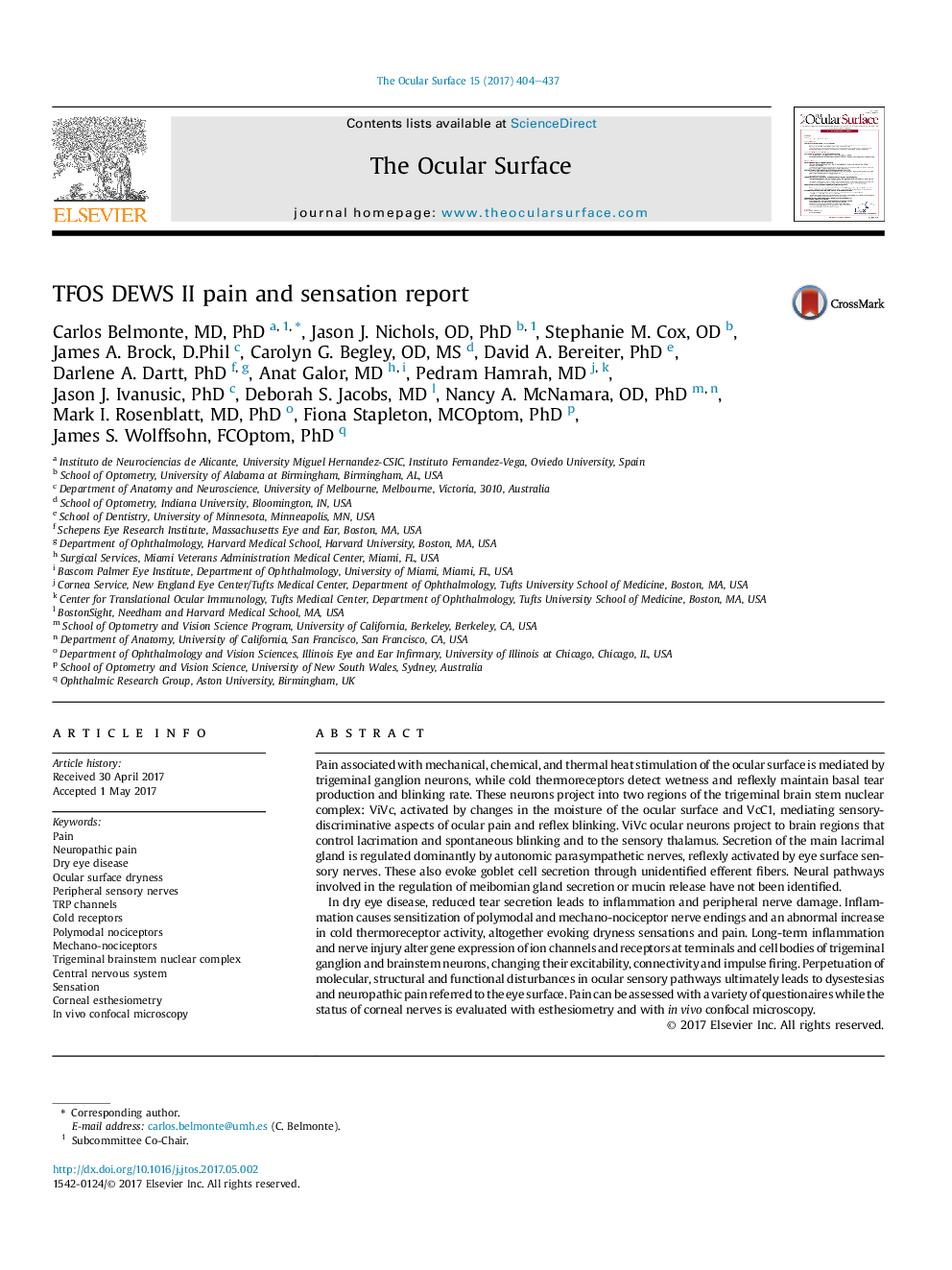| Article ID | Journal | Published Year | Pages | File Type |
|---|---|---|---|---|
| 8591279 | The Ocular Surface | 2017 | 34 Pages |
Abstract
In dry eye disease, reduced tear secretion leads to inflammation and peripheral nerve damage. Inflammation causes sensitization of polymodal and mechano-nociceptor nerve endings and an abnormal increase in cold thermoreceptor activity, altogether evoking dryness sensations and pain. Long-term inflammation and nerve injury alter gene expression of ion channels and receptors at terminals and cell bodies of trigeminal ganglion and brainstem neurons, changing their excitability, connectivity and impulse firing. Perpetuation of molecular, structural and functional disturbances in ocular sensory pathways ultimately leads to dysestesias and neuropathic pain referred to the eye surface. Pain can be assessed with a variety of questionaires while the status of corneal nerves is evaluated with esthesiometry and with in vivo confocal microscopy.
Keywords
Related Topics
Health Sciences
Medicine and Dentistry
Ophthalmology
Authors
Carlos MD, PhD, Jason J. OD, PhD, Stephanie M. OD, James A. D.Phil, Carolyn G. OD, MS, David A. PhD, Darlene A. PhD, Anat MD, Pedram MD, Jason J. PhD, Deborah S. MD, Nancy A. OD, PhD, Mark I. MD, PhD, Fiona MCOptom, PhD, James S. FCOptom, PhD,
